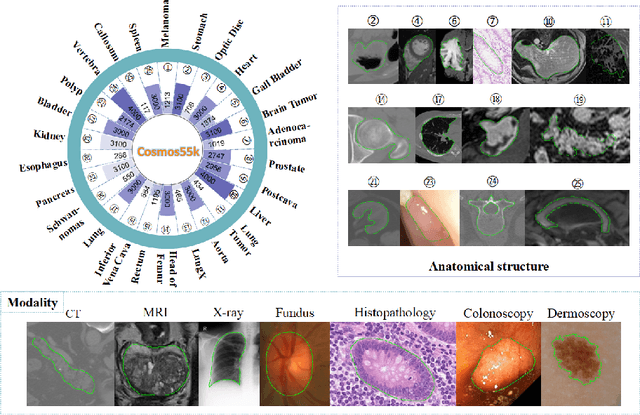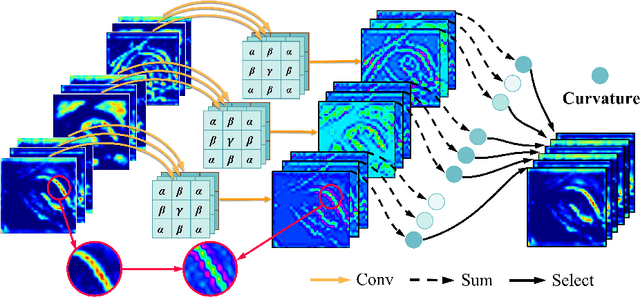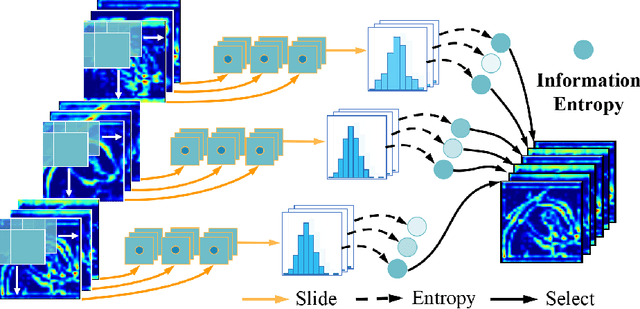Sijing Liu
Instructive Feature Enhancement for Dichotomous Medical Image Segmentation
Jun 06, 2023



Abstract:Deep neural networks have been widely applied in dichotomous medical image segmentation (DMIS) of many anatomical structures in several modalities, achieving promising performance. However, existing networks tend to struggle with task-specific, heavy and complex designs to improve accuracy. They made little instructions to which feature channels would be more beneficial for segmentation, and that may be why the performance and universality of these segmentation models are hindered. In this study, we propose an instructive feature enhancement approach, namely IFE, to adaptively select feature channels with rich texture cues and strong discriminability to enhance raw features based on local curvature or global information entropy criteria. Being plug-and-play and applicable for diverse DMIS tasks, IFE encourages the model to focus on texture-rich features which are especially important for the ambiguous and challenging boundary identification, simultaneously achieving simplicity, universality, and certain interpretability. To evaluate the proposed IFE, we constructed the first large-scale DMIS dataset Cosmos55k, which contains 55,023 images from 7 modalities and 26 anatomical structures. Extensive experiments show that IFE can improve the performance of classic segmentation networks across different anatomies and modalities with only slight modifications. Code is available at https://github.com/yezi-66/IFE
Hierarchical Agent-based Reinforcement Learning Framework for Automated Quality Assessment of Fetal Ultrasound Video
Apr 14, 2023


Abstract:Ultrasound is the primary modality to examine fetal growth during pregnancy, while the image quality could be affected by various factors. Quality assessment is essential for controlling the quality of ultrasound images to guarantee both the perceptual and diagnostic values. Existing automated approaches often require heavy structural annotations and the predictions may not necessarily be consistent with the assessment results by human experts. Furthermore, the overall quality of a scan and the correlation between the quality of frames should not be overlooked. In this work, we propose a reinforcement learning framework powered by two hierarchical agents that collaboratively learn to perform both frame-level and video-level quality assessments. It is equipped with a specially-designed reward mechanism that considers temporal dependency among frame quality and only requires sparse binary annotations to train. Experimental results on a challenging fetal brain dataset verify that the proposed framework could perform dual-level quality assessment and its predictions correlate well with the subjective assessment results.
 Add to Chrome
Add to Chrome Add to Firefox
Add to Firefox Add to Edge
Add to Edge